MongoDB for back-end development
9 December 2022 | Noor Khan
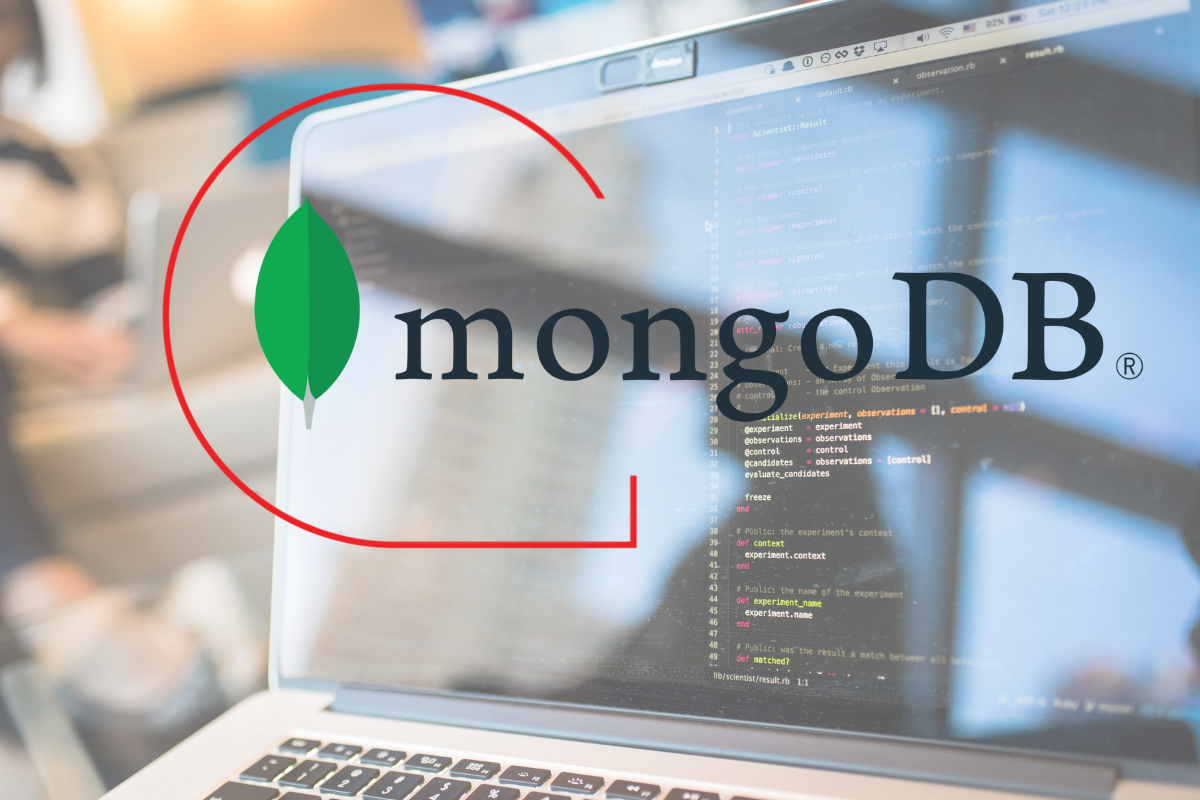
MongoDB is one of the leading NoSQL, document-based database technologies. According to Enlyft, there are over 35,00 companies worldwide that are using MongoDB including world-leading brands such as eBay, Toyota and Forbes. MongoDB has a market share of approximately 45.11% in the NoSQL Database category, competing with other technologies such as NoSQL (22.73%) and Amazon DynamoDB (9.55%) as highlighted by Slintel.
In this article, we will look at MongoDB for back-end development, what it has to offer and the key benefits.
What is MongoDB?
MongoDB is a non-relational Database Management System (DBMS). MongoDB enables organisations to easily and effectively organise their large volumes of unstructured data in one place. MongoDB is the alternative to the traditional data approach of using tables and rows, instead, it makes use of a collection of documents. It is ideal for organisations that have large volumes of varied, unstructured data.
MongoDB for back-end development
MongoDB is one of the leading back-end technologies for application development. With a dynamic schema, highly scalable and high-performing nature, it is the ideal choice for many applications.
MongoDB for data warehousing: Key benefits
Open source
MongoDB is free to get started with as it is an open-source technology. However, as your needs and requirements evolve you will need to pay licensing fees.
Highly scalable
Offers scalability with both horizontal and vertical scaling. Therefore, MongoDB can be an ideal choice of database technology if you have scalability as a key goal.
Great performance
Compared to a traditional relational database such as Ms SQL, it offers a high level of speed and performance. With Sharding, it enables data to be divided in shards for processing simultaneously across multiple servicers, speeding up the process.
Flexibility
As MongoDB is suitable for structured and unstructured data, it can offer flexibility as it stores both. Additionally, with it being schema-less you have the ability to store an increased variety of schema-less data.
MongoDB for data warehousing: Limitations
Although MongoDB offers significant benefits, there are some limitations to consider and they include:
Memory usage
MongoDB requires a high level of memory storage as it can pose challenges with duplicate data which means memory storage is not optimised.
Duplicate data
Duplicate data can cause multiple challenges for organisations, as it makes data management difficult. With MongoDB duplicate data is cited as an issue.
Data size and storage
You are limited to 16MB per document, therefore this would not be suitable for any data that is bigger.
MongoDB use cases
There are many well-known brands that have employed MongoDB to create powerful applications, from Vodafone building cloud-native apps to Boots using it for their microservices app. Here at Ardent, we have used MongoDB for a number of our client projects, here is a look at some of them.
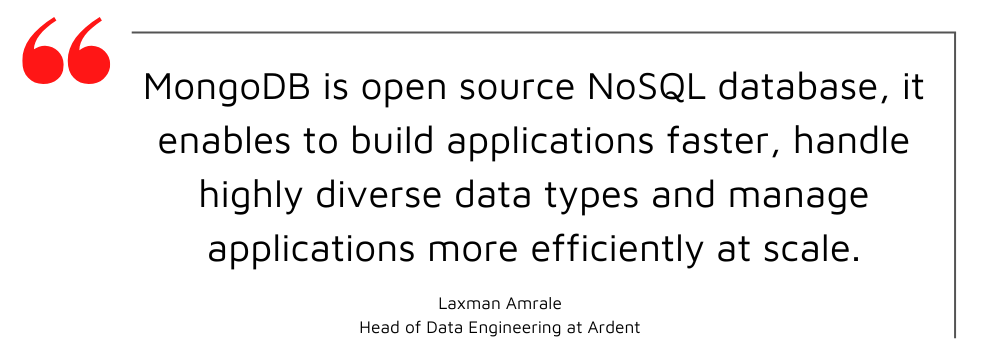
“MongoDB is open source NoSQL database, it enables to build applications faster, handle highly diverse data types and manage applications more efficiently at scale.” – Laxman Amrale – Head of Data Engineering at Ardent.
Back-end technology of choice for service quality management software
When it came to choosing the back-end technology for service quality management software that is used for IT projects, MongoDB was the ideal solution due to it being a non-relational database. The software was packed with helpful features such as email integration, user-friendly AG grid and document storage to offer the end user the complete solution to managing their projects.
Read the full story of how our expert software engineers built sophisticated, resourceful service quality management software.
A complete recruitment software hosted on the cloud
The Ardent highly skilled software development team delivered highly functional and flexible recruitment software which enabled our clients to offer this end clients a complete solution. Some key features include email integration, document management, access control and much more.
Read the full story on getting the job done with exceptional recruitment software solutions.
Ardent and MongoDB partnership
MongoDB is an Ardent technology partner as it is one of the world's leading open-source technologies. Many of our highly skilled data engineers are proficient in MongoDB and have acquired various certifications to demonstrate their expertise. If you are looking to leverage the power of MongoDB for your next project we can help. Alternatively, you bring us your challenges and we can work together to find the right solution for you built with technologies that will ensure you meet your goals and objective.
Explore our open-source partnerships, or get in touch to find out more.
Ardent Insights
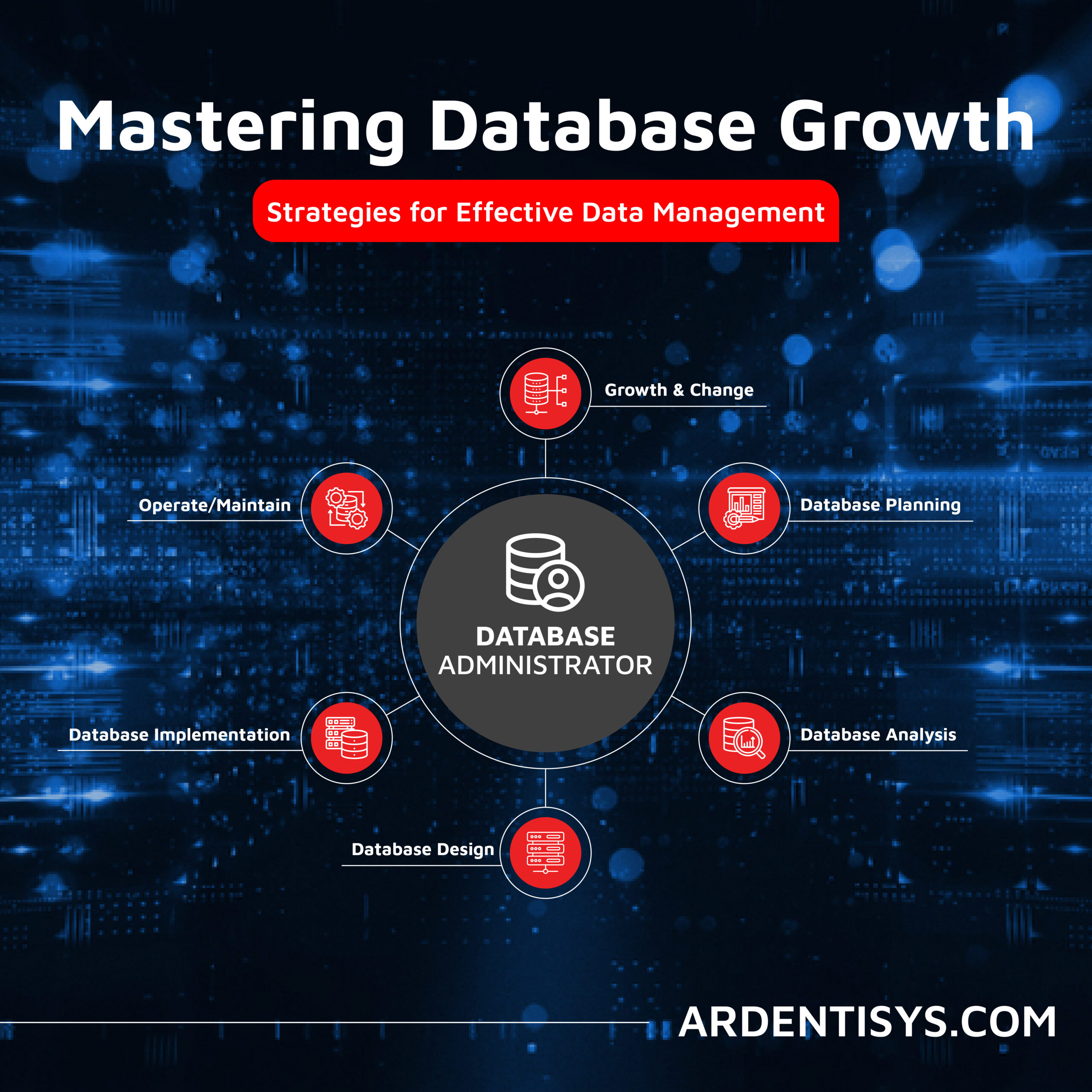
Overcoming Data Administration Challenges and Strategies for Effective Data Management
Businesses face significant challenges to continuously manage and optimise their databases, extract valuable information from them, and then to share and report the insights gained from ongoing analysis of the data. As data continues to grow exponentially, they must address key issues to unlock the full potential of their data asset across the whole business. [...]
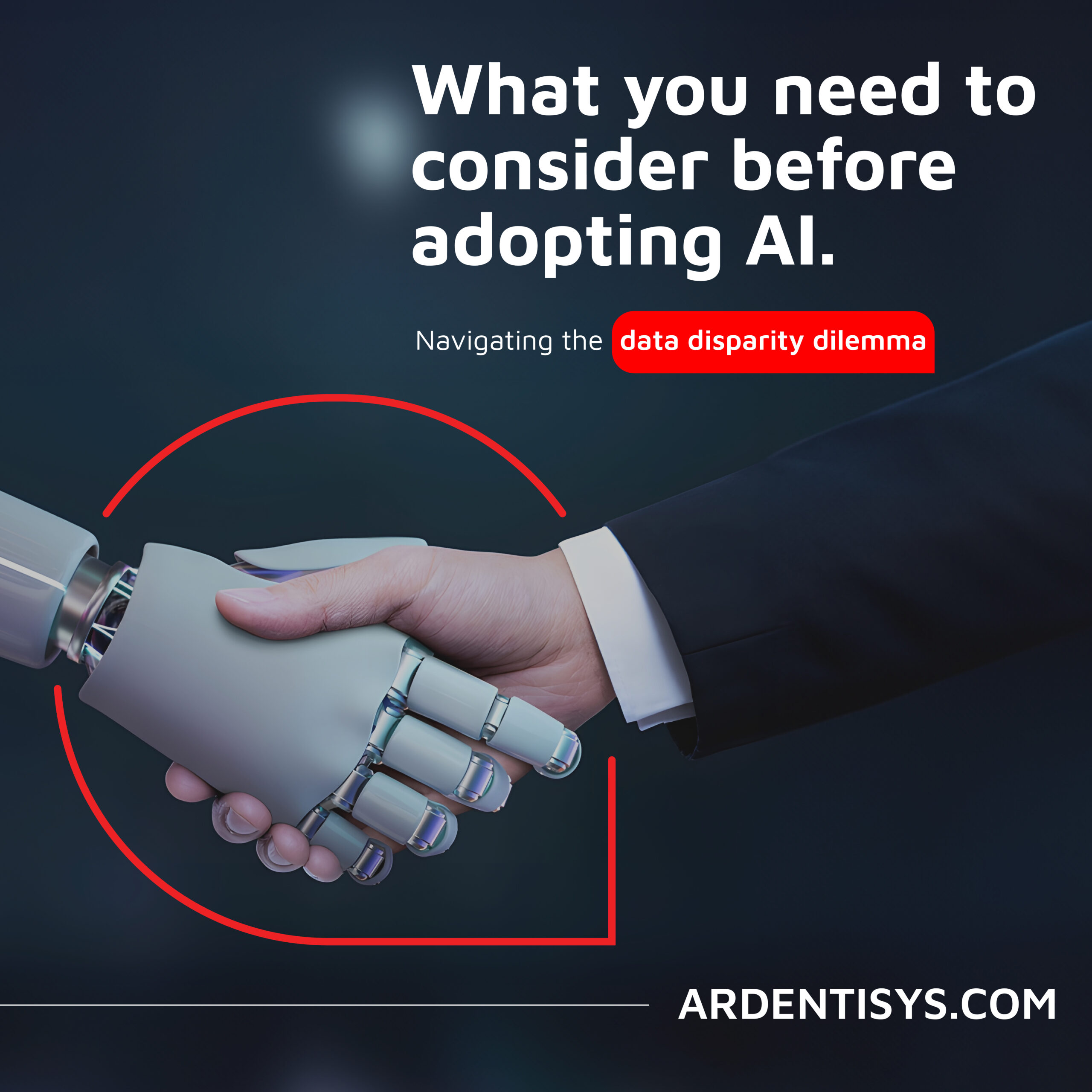
Are you considering AI adoption? We summarise our learnings, do’s and don’ts from our engagements with leading clients.
How Ardent can help you prepare your data for AI success Data is at the core of any business striving to adopt AI. It has become the lifeblood of enterprises, powering insights and innovations that drive better decision making and competitive advantages. As the amount of data generated proliferates across many sectors, the allure of [...]
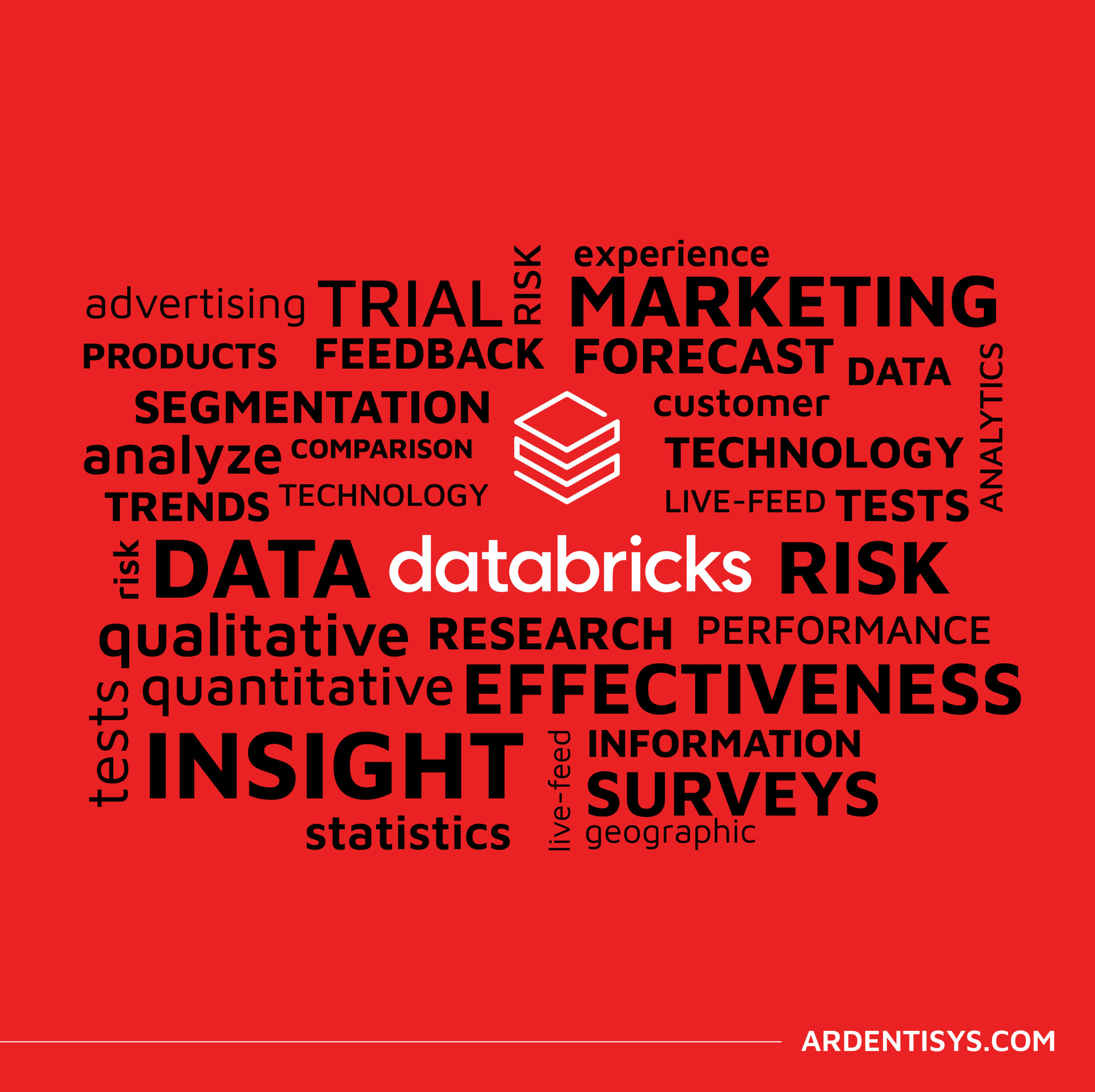
Why the Market Research sector is taking note of Databricks Data Lakehouse.
Overcoming Market Research Challenges For Market Research agencies, Organisations and Brands exploring insights across markets and customers, the traditional research model of bidding for a blend of large-scale qualitative and quantitative data collection processes is losing appeal to a more value-driven, granular, real-time targeted approach to understanding consumer behaviour, more regular insights engagement and more [...]






